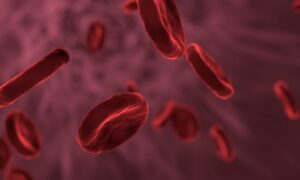Cancer control program waiting on 2023 funding prospects

A 2019 law outlining a system for managing cancer treatment is awaiting how much funding it will get in 2023 to ensure its proper implementation, according to the law’s principal author.
Senator Joseph Victor G. Ejercito said at the Pandesal Forum on Thursday that funding for the National Integrated Cancer Control Act (NICCA) will depend on the priority assigned to it by Department of Health (DoH) and Department of Budget and Management (DBM), as well as on how much funding was left unspent in 2022.
“The NICCA was only given a sufficient budget in 2022. Imagine, that’s two years since its passage,” Mr. Ejercito said. “We’re just looking forward to (funding). We’ll have to make sure, with the help of the DBM and DoH, that it’s funded so that we can help a lot of Filipinos who have or are suffering from cancer,” he added.
Mr. Ejercito said that the 2022 General Appropriations Act allocated P789.956 million and P529 million for the NICCA’s Cancer Control Program and Cancer Assistance Fund (CAF), respectively.
The Cancer Control Program governs all cancer control activities of the government, while the CAF is a pot that cancer patients can draw from.
The Cancer Control Program received P500 million in 2021, while P120 million went to the CAF.
“We’ll see how the funds were utilized in 2022. If there is enough (left over), then probably we can have the same or probably add a little more. We’ll see how it goes, and we will ask for a report from the DoH and the DBM on utilization in 2022. If it’s not enough, then we’ll have to augment (in the) 2023 budget,” Mr. Ejercito said.
Budget Undersecretary Tina Rose Marie L. Canda said that as yet, the DBM has not received a response from the DoH in regard to the release of the CAF money.
“We referred the joint memorandum circular to the DoH, and informed them that we are deferring to their expertise in so far as the coverage of treatment and funding of CAF is concerned. We returned it sometime in June 15, 2022 but we haven’t received any response from them after that,” she said at the same forum.
Ms. Canda also said that the government is thinking of placing the CAF under the DoH’s Medical Assistance for Indigent Patients program, which readily available but at a reduced amount compared to its funding as a line item.
“Probably, we can discuss which will make it easier,” Mr. Ejercito responded, saying that he will consult with the Cancer Control Council.
President Rodrigo R. Duterte signed Republic Act 11215 or the NICCA in February 2019, which aside from the Cancer Control Program and the CAF, also established the Philippine Cancer Center, a research facility, and the National Integrated Cancer Control Council, which makes policy.
Mr. Ejercito hopes to solidify the NICCA’s role as the government implements the Universal Health Care (UHC) Act early on in the latter’s rollout.
“The establishment of the specialty centers is already part of the UHC. For several years, patients went here (to Metro Manila) — to the Lung Center of the Philippines, the National Kidney and Transplant Institute, the Philippine Heart Center — so from all parts of the country, they are sent here… the plan with the DoH is to establish specialty centers in strategic areas,” he said.
President Ferdinand R. Marcos, Jr. said in his first State of the Nation Address that coronavirus disease 2019 (COVID-19) highlighted the need for a stronger healthcare system.
“We must bring medical services to the people and not wait for them to come to our hospitals and healthcare centers,” Mr. Marcos said. “We will put clinics, RHUs (rural health units) that will have doctors, nurses, midwives, medtechs once or twice a week.” — Diego Gabriel C. Robles




